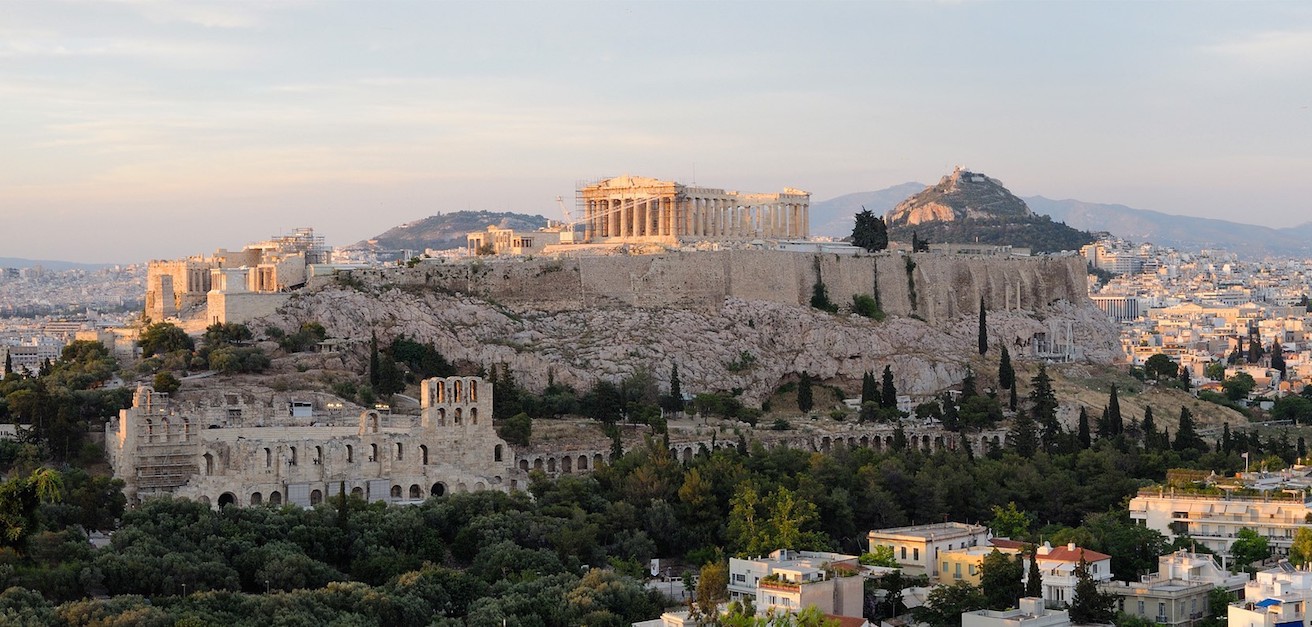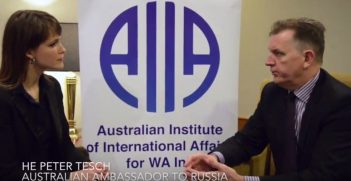Huntington Redux? A New Era of Civilisational Politics

Twenty-five years since Samuel Huntington’s Clash of Civilisations, civilisational talk has returned to world politics with a vengeance.
On a July day in 2017, US President Trump declared that the West was once again under a threat from an oppressive ideology, this time from radical Islamic terrorism. “The fundamental question of our time” he stated “is whether the West has the will to survive. Do we have the confidence in our values to defend them at any cost? Do we have the desire and courage to preserve our civilisation in the face of those who would destroy and subvert it?”
His answer was an empathic yes. “The West will never be broken. Our values will prevail. Our people will thrive. And our civilisation will triumph”. Civilisational talk has returned to world politics with a vengeance. We see it in President Trump’s return to the language of Western values, the use of tropes of the clash of civilisations and barbarism to frame threats posed groups such as ISIS but also in the reinvigoration of the concept of tianxia in Chinese foreign policy.
For many, Trump’s speech resonated with the tenacious spirit of Samuel Huntington’s Clash of Civilisations thesis. First published in 1993 in the wake of the end of the Cold War, Huntington argued that culture rather than ideologies would become the new driving force of world politics. Future conflict would occur on the fault lines between civilisations, whilst kin countries would rally together. The central axis of world politics in the future was likely to be the conflict between the West and the Rest. The most significant challenge to the West was the centuries old confrontation between the West and Islam but also the rise of East Asia. Huntington’s thesis portrayed civilisations as homogeneous, immutable and essentially incommensurable.
Huntington’s vision of a weakly-socialised international system prone to inter-civilisational conflict provided one powerful lens through which the 9/11 attacks and the emergence of violent Islamic groups such as Al Qaeda were viewed. This was further fuelled by the rise of groups such as ISIS and Boko Haram whose use of practices such as kidnapping, enslavement, online beheadings and immolation have been widely described as barbaric. The idea of civilisations in conflict was dramatically placed back at the heart of political discourse in the West by the Charlie Hebdo and Paris attacks of 2015, and subsequent ISIS-inspired attacks in places such Istanbul, Brussels, Manchester and London.
“This” argued US Presidential candidate Marco Rubio, “is a clash of civilisations.” President Trump’s rapid move on assuming office to limit travel from certain Muslim majority countries and the presence of advisors such as General Mike Flynn and Steve Bannon—who had previously argued that the West was at the beginning stages of a global war against Islamic fascism—indicated that Rubio’s view now had powerful friends in the White House.
However it is not only in the context of violent jihadism that civilisational talk is back in vogue. Both China and Russia have also invoked civilisational identities and discourses in promoting their policies and authority at home and abroad. In recent years, the concept of tianxia and the harmonious world have been rejuvenated in China, articulating a worldview that harks back to China’s imperial past and Confucian identity. Xi Jingpin has also reminded the world of the “unique achievement” of China’s “continuous civilisation”.
In Russia, Vladimir Putin from 2012 onward began to articulate the idea of Russia as a distinctive “state-civilisation”: a multi-ethnic nation united around traditional Russian and family values. He has spoken forcefully about the integrity of Russia’s national identity that is under pressure from the forces of globalisation and threatened by a pernicious Euro-Atlantic civilisation that promotes Western cosmopolitan immorality.
Civilisational talk is therefore a powerful element of contemporary international political discourse. The concept of civilisation in the singular can be used to evaluate and valorise particular practices, norms or institutions as advanced in contrast to those which are barbaric or savage. Civilisation in the plural can be used as a way of locating peoples in broader socio-cultural frameworks, built on shared histories, traditions, values, languages, religion or world-views. Both of these conceptions are profoundly political: both establish particular boundaries and sets of expectations. Having the capacity to define what constitutes civilised or barbaric behaviour or the values and identities that establish boundaries of particular civilisational communities has significant political implications.
In civilisational talk today, both civilisation in the singular and the plural are being strategically deployed. China’s civilisational discourse, for instance, provides a way of both enhancing domestic cohesion around a powerful identity and also reinforcing China’s status as a great power. It bolsters China’s representation of itself as a leader with a role in shaping the global order and which can legitimately challenge the hegemony of the West within that order. Putin’s turn to the language of civilisation is to some extent a response to the identity crisis generated by the pressures of globalisation and Western democracy-promotion in the wake of the collapse of the Soviet Union.
But the most prominent and perhaps most dangerous site at which civilisational discourse is strategically deployed is in the debate about the relationship between Islam and the West. Casting the relationship between these constellations of people as a clash of civilisations echoes Huntington in representing civilisations as immutable and incommensurable. It fuels radical polarisation within and across societies, as we have seen with the rise of far right parties across Europe with agendas that cast Muslims and Muslim immigration as a threat. But these narratives of irreconcilability also fuel the cause of violent jihadists who welcome the representation of the relationship between Islam and the West as one of irreducible difference and conflict.
The language of civilisation and barbarism comes with risks. There is a lingering question of who defines what is civilised and what (and who) is barbaric. Whose standards and whose rules are used to draw these boundaries? Civilisational talk can also shine a light on the importance of culture and cultural interaction in world politics. It can help us understand what we have in common as well as helping us understand what makes us different and unique. But it is how we understand and represent civilisation that matters.
Civilisational talk is a powerful tool: it can bring us together, but also to push us apart. It makes the politics of identity simple—black and white—which is particularly attractive at times when we face confusing and dangerous challenges. But it also loses the rich complexity of societies and cultures and of their interactions that have often been source of creativity as much as conflict in our societies. Discourse such as the clash of civilisations can be a Pandora’s box: once given oxygen, ideas of cultural incommensurability can be very difficult to contain.
Jacinta O’Hagan is Associate Professor and Director of the Centre in Governance and International Affairs, School of Political Science and International Studies at the University of Queensland.
This article is published under a Creative Commons Licence and may be republished with attribution.





